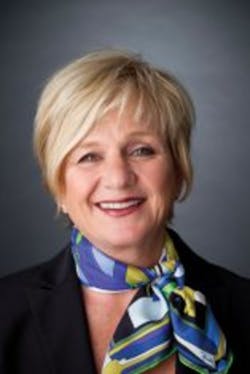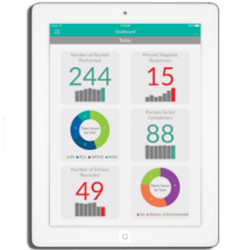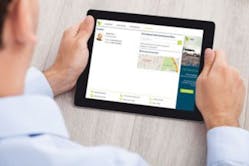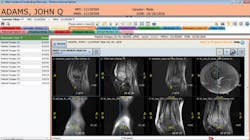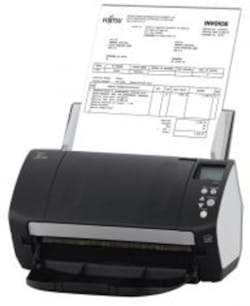Claims & Coding
Medicare to accept some ICD-10 coding errors
Medicare claims will not be denied for “unintentional errors” in specificity during the first year that ICD-10 is in place, according to a blog post on the American Medical Association (AMA) website by AMA President Steven J. Stack, M.D. on July 6, 2015. Stack said that the AMA secured the terms from the Centers for Medicare & Medicaid Services (CMS) to “ease this transition, particularly for physicians in practices with limited resources.”
According to Stack, the update means that, come Oct. 1, 2015, when the new ICD-10 coding scheme takes effect, “Medicare will not deny payment for these unintentional errors as practices become accustomed to ICD-10 coding. In addition, Medicare claims will not be audited based on the specificity of the diagnosis codes as long as they are from the appropriate family of codes.”
Likewise, “CMS will not subject physicians to penalties for the Physician Quality Reporting System, the value-based payment modifier or Meaningful Use based on the specificity of diagnosis codes as long as they use a code from the correct ICD-10 family of codes,” said Stack.
The change affects Medicare Administrative Contractors and Recovery Audit Contractors.
Read Stack’s full post, “CMS to make ICD-10 transition less disruptive for physicians,” at www.ama-assn.org/ama/ama-wire/.
Skill Sets
Iron Mountain
Real role of a records management professional unclear
In a world where records are increasingly becoming digital, business leaders and records and information management (RIM) professionals don’t see eye to eye when it comes to how critical skills for information management success are viewed, according to results from a new study by Iron Mountain.
Business leaders place more importance on soft skills, such as understanding and alignment on business strategy and goals, while RIMs prioritize the core competencies of their role on issues such as compliance, security, and accessibility.
The survey polled senior business executives and records and information professionals in 900 mid-sized European and North American organizations.
“The study reveals worrying gaps in perception and expectation between business leaders and their information professionals,” says Sue Trombley, Director of Professional Services at Iron Mountain. “Companies wishing to harness the full business value of information should look to close this gap – and close it quickly.”
The survey found that both business leaders and RIMs agree that the ability to add value, insight, and analysis around the information they manage, beyond simple reporting, is the most critical skill for RIMs to master in the digital information age, with a third (37 percent) of U.S. business decision-makers and 25 percent of RIMs agreeing. However, while business leaders cited a strategic outlook and awareness of business goals as the second highest priority (23 percent of respondents), RIMs ranked this fourth highest at only 13 percent of respondents.
According to the RIMs surveyed, the second most critical skill set is compliance and security capabilities, with 21 percent naming it as a priority compared to just 12 percent of decision-makers. Similarly, information professionals rank the understanding of digital transformation in third place with 17 percent, compared to a mere 4 percent of business leaders. Both the records and information managers and their business leaders are confident that information professionals can meet these emerging needs, although information managers rate themselves higher across all areas of expertise.
The big takeaway from the results is that the information management professional of tomorrow must not only have a solid grasp on the technical requirements of the profession, but also excel in interpersonal and business skills, including communication and leveraging information to drive real business value.
Source: Iron Mountain
Real-World Applications
Centralized solution simplifies document control
When you run a multistate home care business that caters to the needs of children with complex health challenges, easy access to up-to-date documentation, particularly instructions for caregivers and parents, is paramount – especially when you are required to comply with strict industry regulations.
Realizing it needed a better solution for managing company information, Pediatric Home Service (St. Paul, MN) evaluated several enterprise content management solutions and selected M-Files for its ability to facilitate collaboration and automate document approval workflows. The independent pediatric home care company, which has been partnering with healthcare professionals and family caregivers for more than 25 years to provide care in Minnesota, western Wisconsin, northern Iowa, and eastern North and South Dakota, had been using inefficient processes for managing its information assets. All files were stored on the company Intranet, and only one person had access to edit documents. Other users could view the documents on the Intranet, but it was a tedious process to try and find what they were looking for.
Pediatric Home Service produces a tremendous amount of educational documents, including instructions for parents and its hundreds of caregivers on how to use home healthcare equipment. Prior to implementing M-Files as an on-premise solution, approving educational materials had been an arduous task that included printing documents and writing in comments by hand. There was no way to track where documents were in the approval cycle.
Now each document is automatically routed through an approval workflow process, where the person responsible for checking on each aspect of the plain-language principals can quickly and easily review and approve content.
“M-Files allows us to track version history and provides us with an auditable trail of all document changes, which makes our audit management process much more simple and efficient,” says Rick Mueller, Information Technology Manager at Pediatric Home Service.
When shared access is necessary, it is easily provisioned through the central repository. Staff can view, review, and approve pertinent information from wherever they are – and there’s only one always-up-to-date copy of each file available. But sensitive or confidential files are just as easily restricted to only those authorized to view or edit them.
Searching also has been turbocharged and mirrors M-Files’ philosophy that information should be managed by “what” it is rather than “where” it is.
“Pediatric Home Service has never had a non-compliance incident,” says Mueller, “and M-Files has played an integral role in helping us with this achievement.”
Source: M-Files
Solutions
The new Patient Relationship Management (PRM) suite from ADP AdvancedMD helps private medical practices streamline the patient intake process and the amount of time it takes to administer patient forms. PRM enables patients to easily complete forms electronically (even from home), and once finished, forms automatically and securely populate in patient charts, ensuring the medical staff has the most up-to-date information available on the patient. The suite includes the AdvancedMD mobile patient and administrative check-in kiosk. The check-in kiosk, when combined with AdvancedMD insurance verification, credit card processing, and advanced online communications with patients, creates a full-featured front-office solution. ADP AdvancedMD
Go the paperless route
The Ambir nForm solution enables totally paperless, convenient, and secure capture and transfer of signed forms through the Ambir 410x wired tablet (which features a larger screen area than signature pads currently on the market) or iOS and Android tablets. This easy-to-use solution lets practices use existing forms, so there is no requirement to purchase special or customized ones. Likewise, there is zero integration needed to use nForm with commercially available EHR or document management applications, because it employs an Ambir TWAIN driver known for its plug-and-play ability. Ambir
Cerner’s form management technology has helped Banner Health improve efficiency, reduce errors, and save nearly $2 million over the last three years. Before implementing Millennium eForms and Content360 Patient eSignature in 2012, the seven-state health system made up of 28 acute-care hospitals was spending an average of $1.7 million dollars a year on forms. In the first year after implementation, the organization cut costs by more than $1.2 million. By 2014, annual spending on forms dropped to $181,000. The technology allows patients to review forms on a display monitor and sign documents on an electronic signature pad or tablet – avoiding the process of printing, signing, and rescanning. Clinicians are also able to use Patient eSignature at the bedside. Cerner
Changing to CipherHealth’s Orchid application to streamline recordkeeping during nurses’ hourly hospital rounds at HealthAlliance of the Hudson Valley has resulted in marked improvement in patient satisfaction scores (up to 10 percent in some areas). The Orchid hospital-rounds application lets nurses or nursing assistants document clinical information and patient comments gathered during their rounds on touch-screen tablet computers – a dramatic improvement from the previous practice of writing such records on clipboard pads and communicating patient information verbally. The information is simultaneously shared through the system to clinical leaders and other clinical staffers. The system can also be used to message and alert all appropriate staff in other departments immediately for rapid follow-up and resolution. CipherHealth
GMC Inspire customer communications management software utilizes a healthcare organization’s existing assets, legacy applications, and investments in customer relationship management to streamline the communications process at each interaction. This solution takes dynamic content, converts it on demand, and delivers it via the member’s preferred channel. Users get the benefit of moving static statements to a more client-centric, high-touch approach; automating processes without increasing IT burden; incorporating personal messaging; expanding multichannel marketing; and satisfying regulatory compliance while streamlining business processes. GMC Software Technology
More than 1,800 lifetime healthcare organizations use OnBase, an enterprise content management (ECM) solution that connects information from various clinical and financial systems used in different departments across the enterprise. This solution integrates with an EMR system to provide a single point of access for the entire patient record (including DICOM images), and as much as 65 percent of the content stored outside an EMR. OnBase also eliminates inefficiencies in accounting, finance, and human resources by integrating with electronic resource planning (ERP) systems. OnBase was ranked the top healthcare document management and imaging (DMI) software product in the 2014 Best in KLAS: Software & Services report. OnBase by Hyland
Fujitsu offers new, enhanced scanning software options for its fi-series document imaging scanner line. Advanced Capture helps organizations seamlessly automate important steps of the document capture process (separation, sortation, classification, and extraction) while minimizing errors. OCR, ICR, and OMR features simplify scanning for departments that process large amounts of documents. Included with Advanced Capture is Mobile Capture for capturing and sending high-quality documents, images, and data with an iOS or Android mobile device. PaperStream Capture Pro provides predefined templates and flexible data extraction options so users can leverage scanned images and indexed information in their enterprise content management (ECM) systems. Fujitsu

